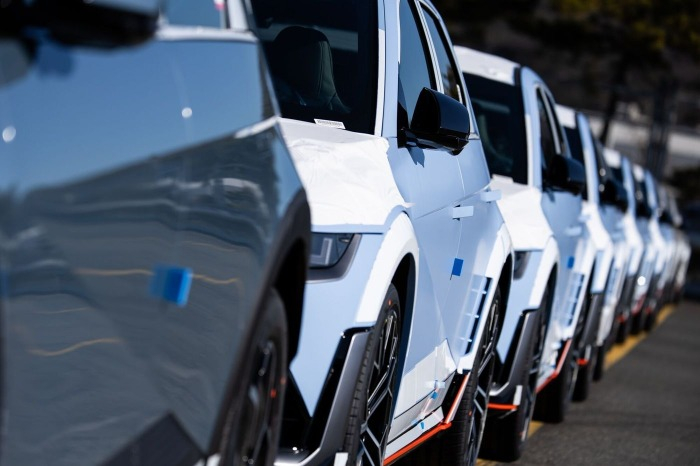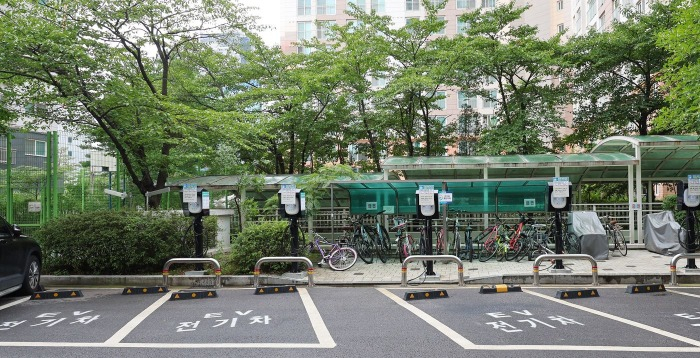After Mercedes Fire, EV Owners Want to Know What Battery They Have
Car in South Korea blaze had a battery from a lesser-known Chinese maker, prompting calls for greater transparency on a key component
By The Wall Street Journal Aug 21, 2024 (Gmt+09:00)
LG Chem to sell water filter business to Glenwood PE for $692 million


KT&G eyes overseas M&A after rejecting activist fund's offer


Kyobo Life poised to buy Japan’s SBI Group-owned savings bank


StockX in merger talks with Naver’s online reseller Kream


Meritz backs half of ex-manager’s $210 mn hedge fund



SEOUL—The uproar over a Mercedes-Benz electric vehicle that burst into flames in South Korea this month wasn’t only about fire safety. Outrage emerged over the lesser-known Chinese battery maker, Farasis Energy.
Now South Korea has a fresh proposal to ease public anxiety: advising carmakers to voluntarily divulge what brand of battery sits inside their EVs.
Such information isn’t generally public knowledge globally, despite the importance EV users place on battery life and driving range. At the same time, lithium-ion batteries—should they catch fire—burn at far higher temperatures than fires in conventional gas-powered cars and are uniquely challenging for firefighters to tackle.
It is rare for EV makers in the U.S. to disclose a car’s battery brand. The European Union last year approved the creation of a mandatory “battery passport” for EVs, which details the manufacturer and where the materials are sourced. It will take effect in 2027.
On Tuesday, South Korea’s top policy office for government ministries recommended that automakers provide more transparency about EV battery brands. The group plans to detail a comprehensive EV safety policy plan next month. In recent days, Hyundai Motor Co. , Kia Corp. , BMW Korea and Mercedes-Benz Korea have voluntarily disclosed on their websites who makes the batteries their EVs use.

Even without disclosures, motivated consumers have been able to learn the battery brands by asking the carmaker directly, seeking out vehicle teardowns or reading media reports. Owners can also find out what type of battery is in their EVs when replacing it.
The Aug. 1 blaze unfolded in an underground parking lot, which are common in the densely populated country. It incinerated around 40 nearby cars and scorched around 100 others. Some apartment complexes have considered barring EVs from underground lots. Local governments are exploring whether public charging stations shouldn’t charge EV batteries beyond 80% capacity, to reduce the risk of fires. Local media described the country as undergoing a sudden “EV-phobia.”
The backlash from South Korean EV owners themselves largely centered on how the Mercedes-Benz EQE—whose prices start from around $67,000 in the country—was fitted with a Farasis battery. Mercedes had foregone not only local Korean options but also better-known Chinese firms such as CATL. Fire risks from Farasis batteries were cited as a reason behind a 2021 recall by China-based BAIC of roughly 32,000 EVs.
South Korean authorities have yet to determine the exact cause of the Mercedes blaze. Mercedes-Benz’s local office said it would cooperate with the investigation. Farasis didn’t respond to a request for comment.
Write to Jiyoung Sohn at jiyoung.sohn@wsj.com
-
 Electric vehiclesHyundai, Kia to apply BMS to all EVs for fire prevention
Electric vehiclesHyundai, Kia to apply BMS to all EVs for fire preventionAug 16, 2024 (Gmt+09:00)
3 Min read -
 Electric vehiclesFire-plagued Mercedes uses Chinese cells for most EVs in S.Korea
Electric vehiclesFire-plagued Mercedes uses Chinese cells for most EVs in S.KoreaAug 14, 2024 (Gmt+09:00)
2 Min read -
 Electric vehiclesMercedes, BMW, Audi, VW offer deep discounts amid EV phobia in Korea
Electric vehiclesMercedes, BMW, Audi, VW offer deep discounts amid EV phobia in KoreaAug 12, 2024 (Gmt+09:00)
3 Min read -
 Electric vehiclesHalf of EV imports in Korea run on Chinese batteries as EV fires rise
Electric vehiclesHalf of EV imports in Korea run on Chinese batteries as EV fires riseAug 09, 2024 (Gmt+09:00)
4 Min read -
 AutomobilesGenesis beats BMW to rival Mercedes in Korea's premium segment
AutomobilesGenesis beats BMW to rival Mercedes in Korea's premium segmentMay 07, 2024 (Gmt+09:00)
3 Min read


